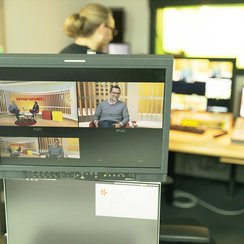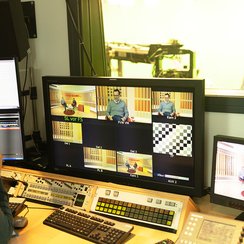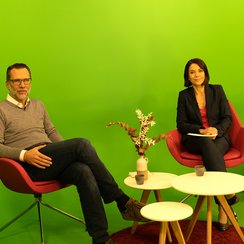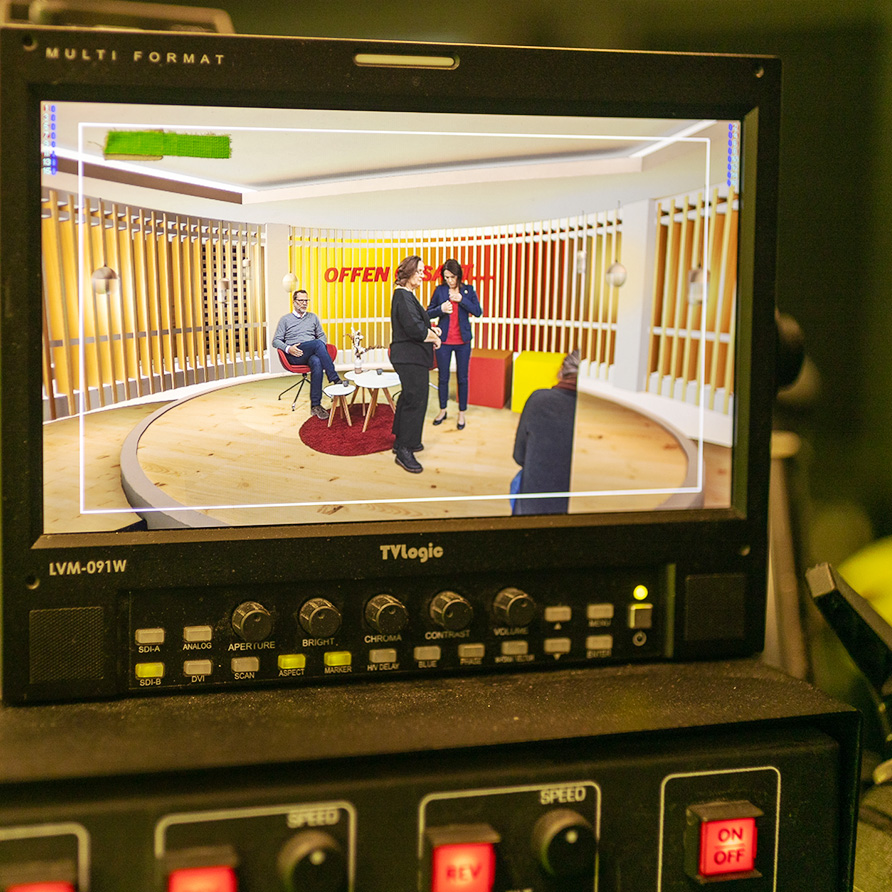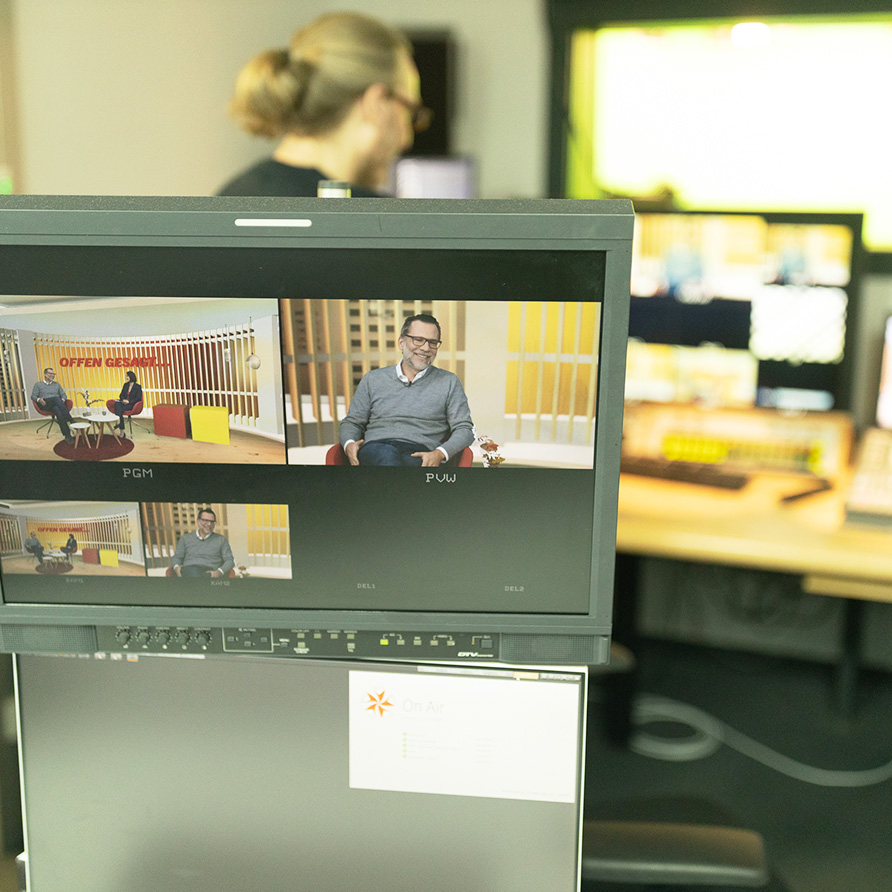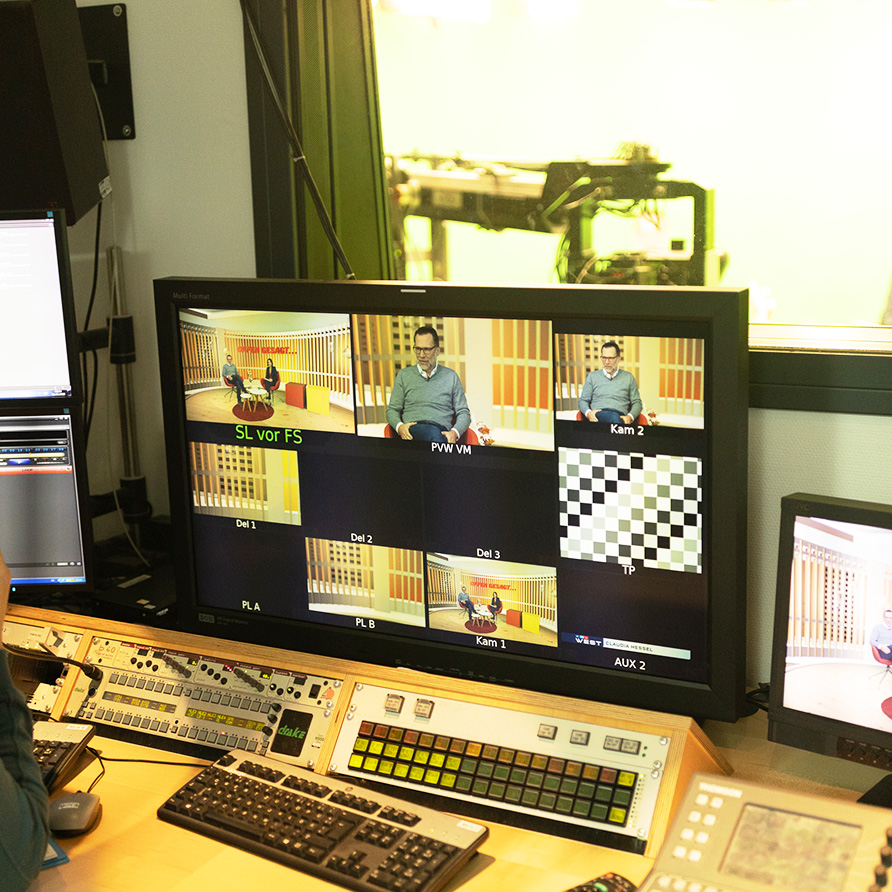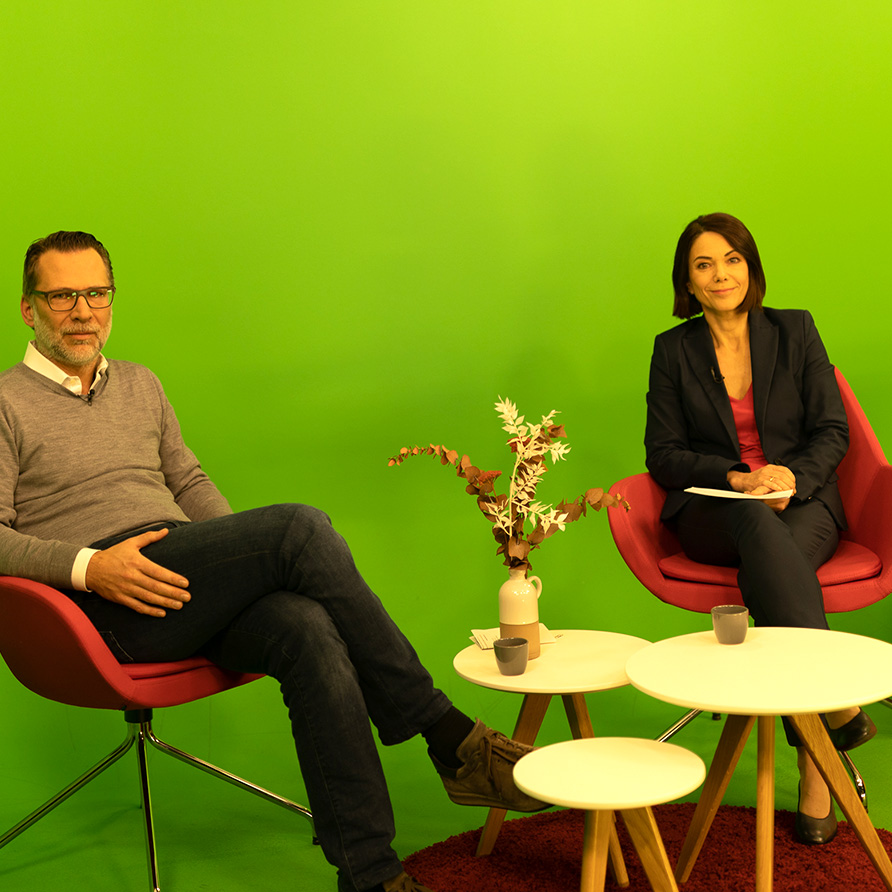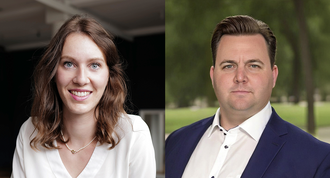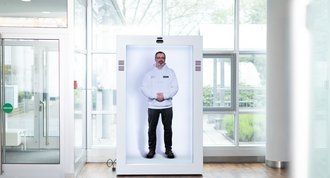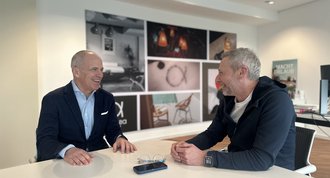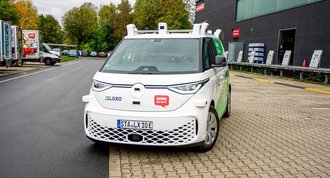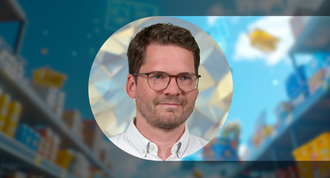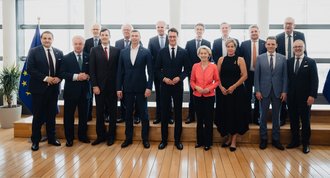Christoph Eltze has been CDTO of REWE Group for over six months. We spoke to him about the importance of effective IT for a retail company, the use of artificial intelligence and how technology can help create the best shopping experience.
one: Mr Eltze, you are REWE Group's first Management Board member for Digital and Technology. Why is it so important to position these topics at Management Board level right now?
Christoph Eltze: The past few years have clearly shown how important it is to be able to adapt quickly to changing conditions. We were able to set up new pick-up stations quickly during the pandemic and score points with the REWE delivery service because we were well positioned in this area and, above all, flexible. Only those who bring this speed and agility to the table have a chance of standing out from the competition. Technology and digitalisation also play a critical role in the retail sector. We recognised this early on and are bundling strategic, digital and technological responsibility in a new Management Board department.
An important step in this direction was the merger of REWE Systems and REWE Digital under the new REWE digital brand. We have thus created a powerful IT unit that has set itself the goal of creating an even better shopping experience for our customers at REWE and PENNY - both in traditional bricks-and-mortar retail and in online retail. With the Customer, Strategy and Analytics department, we ensure that we are clearly positioned strategically. This requires an excellent database that is analysed using state-of-the-art analytics tools. This is the only way we can position ourselves for the future in the interests of our customers and offer them a good shopping experience both online and offline. Digital and technology play a decisive role when it comes to future-proofing REWE Group and all of its units.
„Digital and technology play a decisive role when it comes to future-proofing REWE Group and all of its units and making them flexible.“

one: Then let's take a look at our future-oriented projects and the area of technology: What role will a powerful IT unit play in the shopping experience of the future?
Christoph Eltze: First of all, food retail is and will remain a business that is made by people for people. Technology supports and simplifies workflows and processes and shows us new ways in which we can further improve the shopping experience for our customers.
Good examples include our Pick & Go stores in Cologne, Berlin and Munich, as well as Scan & Go. Thanks to the close integration of REWE digital with our internal business partners, we can successfully implement, pilot and now further expand these projects and open up new locations for this form of shopping. This clearly positions us as a pioneer that understands new formats and shop technologies, pushes them forward, successfully launches them and then learns from customer feedback to further improve them. Only as a joint team with a wide range of expertise is it possible to achieve such success.
Since October last year, we have also bundled our IT in line with an omni-channel strategy. Our customers shop online and in-store, select the best coupons from the app and use them to go shopping in the store. Our primary task is to provide our customers with the best possible shopping experience. Incidentally, all these future-oriented projects have the advantage that we are perceived as a modern and attractive employer in the IT sector. And the next wave is already approaching: the possibilities of artificial intelligence will massively change our understanding of efficiency and new customer experiences.
„The grocery trade of the future will remain a business by people for people, but technology will provide strong support, simplify and create new opportunities.“

one: That brings us to your second major area alongside IT: Customer, Strategy and Analytics. What exactly does this entail?
Christoph Eltze : For us, customers always come first. We take this focus seriously and continue to drive it forward by using modern technologies to better understand our customers. To do this, we use data-driven analysis tools to answer questions that are on every retailer's mind: How many items do I need in the promotion to meet customer demand? Which items do I need to replenish on the sales floor so that no customer is left empty-handed? Or the question: How can I make my customers individually relevant offers at the exact moment they are receptive to them?
We have been working on highly analytical questions and solutions for several years. Recently, we have also been using more and more AI methods to support the best possible decisions. The topic - most recently characterised by ChatGPT - is also attracting wider public attention again because it is making itself felt in people's everyday lives. If schoolchildren suddenly do their homework very quickly and comprehensively every day and this was not the case before, then it was probably ChatGPT. Even if some people are still unfamiliar with AI, these reservations can be overcome more quickly thanks to the new, simple application options. This also applies to our shopping experience. If we make AI more tangible in everyday shopping, it will help people to understand these applications even more as part of their everyday lives. And all this hand in hand with our business units. The more we pool our various competences and perspectives across functions, the better the solutions will be. This enables us to have the right products in the right place at the right time. And that is ultimately an important component of a good shopping experience.
one: What does this mean in concrete terms for shopping both in-store and online?
Christoph Eltze: The examples I just mentioned show very well what can already be achieved today and how AI can make a real contribution to our company. Looking to the future, we will always think from the customer's perspective when it comes to the further use of artificial intelligence and consider where in the value chain we need to start. The application of machine learning technologies and the use of artificial neural networks will help us in particular. This enables progress on several levels: We will be able to offer our customers personalised products and experiences that are precisely tailored to their individual needs.
Ultimately, what matters to our customers is where they can get the best overall package with offers tailored to their needs. It's no longer just about the best price, but also about suggestions for the right wine to go with the recipe they have saved in the REWE app, for example. Or the ability to pay for a small purchase quickly and easily without having to wait at the checkout. Or to display adverts or coupons in such a way that they are relevant to customers and are used. We can only offer all of these services if we have the support of artificial intelligence. In logistics, we can further automate processes with the help of artificial intelligence, making us more efficient, faster and better. We can provide our employees in the stores with real-time analyses that help them make direct adjustments on site.
We also use artificial intelligence in the form of machine learning to identify or, even better, predict shelf gaps. We also optimise the interaction between forecasting, replenishment and logistics with the help of machine learning - a machine-supported version of AI. As you can see from these examples, we are dealing with a broad field when it comes to the use of AI, which can help us make rapid progress in many areas - and we are only at the beginning of using this technology.
„In addition to our investments, however, we have also started to develop new business models on our own and establish them on the market.“

one: And customers need to be sure that their data is in good hands with us.
Christoph Eltze: The increasing number of cyberattacks in all areas of daily life shows that we need to prioritise information and data protection. As a company that is part of the critical infrastructure, we must send out a clear signal that we are aware of this danger and are arming ourselves against it as best we can. That is why we have not only reorganised the entire area, but also launched a large-scale information campaign. We are also sensitising our employees to the issue and providing them with the knowledge they need to recognise and assess cybercrime threats in good time.
one: And it also highlights the complexity of the problems that retailers need to solve with the help of intelligent, technical applications. To this end, we are constantly investing in start-ups and utilising the expertise that is already available on the market.
Christoph Eltze: Exactly. Like many large companies, we don't have to keep reinventing the wheel when there are already powerful solutions available. We summarise these investments in technology start-ups in the Digital Ventures division. We made a particularly successful investment in commercetools eight years ago. Today, it is one of the most valuable technology start-ups - and already number two in the European market after SAP.
We are also very satisfied with our investment in Trigo, our partner in the field of computer vision. Both Trigo and we benefit from their respective expertise and can thus offer our customers new shopping experiences. In addition to our investments, however, we have also started to develop new business models on our own and establish them on the market. These primarily include our technology subsidiaries paymenttools and fulfilmenttools. With paymenttools, we have our own payment service provider that is so flexible from the outset that we can easily integrate new technologies and developments. And fulfilmenttools offers a modular software solution with which we primarily support smaller retailers in the logistical processing of e-commerce orders. Together with commercetools, these three technology subsidiaries cover the entire online purchasing process, from product selection to the shopping basket and the payment process through to the logistics behind the delivery.
one: Mr Eltze, thank you for talking to us.
Episode 5
"Frankly speaking" - the talk with the Management Board
In January, our newly formed Management Board took over the management of REWE Group in what continue to be turbulent times. Ines Schurin, Head of Corporate Communications, spoke to the Management Board members about their strategy, what it takes to work together and how we can remain competitive despite all the challenges in the new video format "Offen gesagt" over a hot drink of their choice.
And this is the last episode:
- 22. March Telerik Shishmanov, Management Board member for Finance
All previously published episodes of "Offen gesagt" are now available in the one_Mediathek.



